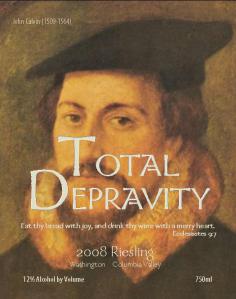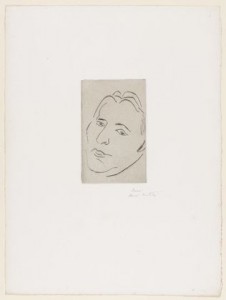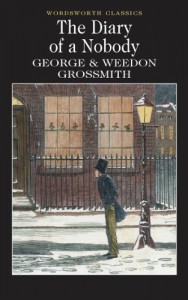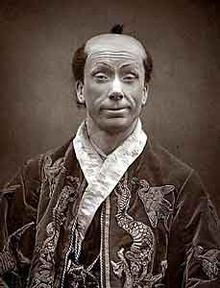These postings put me in mind of H.L. Mencken’s saying that criticism is “prejudice made plausible.” He had a point, but some prejudices don’t lend themselves to such treatment, or at least shouldn’t. I don’t like all art, I’m pretty sure I don’t like all good art, and I think it’s the better part of wisdom for me not to pretend that all the art I dislike is bad. Like everyone else, I have my share of aesthetic allergies, which may or may not necessarily correspond to the Truth About Art….
Read the whole thing here.



 • It hasn’t happened often, or recently, but from time to time I’ve been told things about good friends that I really, really didn’t want to know. None of them, fortunately, was bad enough to put me in mind of Somerset Maugham’s claim in Don Fernando that “I do not believe that there is any man, who if the whole truth were known of him would not seem a monster of depravity.” (Certainly Maugham himself qualified.) But when you learn that someone you know well has done something of which you strongly disapprove, it’s more than likely that your feelings about that person will be colored by that knowledge.
• It hasn’t happened often, or recently, but from time to time I’ve been told things about good friends that I really, really didn’t want to know. None of them, fortunately, was bad enough to put me in mind of Somerset Maugham’s claim in Don Fernando that “I do not believe that there is any man, who if the whole truth were known of him would not seem a monster of depravity.” (Certainly Maugham himself qualified.) But when you learn that someone you know well has done something of which you strongly disapprove, it’s more than likely that your feelings about that person will be colored by that knowledge. Artists, on the other hand, usually get a pass from me, at least as regards their professional lives. The case I invariably cite is that of Alfred Cortot, the greatest French pianist of the twentieth century, about whom I had occasion to write last year in The Wall Street Journal:
Artists, on the other hand, usually get a pass from me, at least as regards their professional lives. The case I invariably cite is that of Alfred Cortot, the greatest French pianist of the twentieth century, about whom I had occasion to write last year in The Wall Street Journal: Which brings us, as all things seem to do nowadays, to the social media. I wonder how the Facebook-enabled young will feel about hypocrisy and its discontents, just as I wonder whether—or, more likely, how soon—they will come to regret their personal decisions to live their private lives in public. I
Which brings us, as all things seem to do nowadays, to the social media. I wonder how the Facebook-enabled young will feel about hypocrisy and its discontents, just as I wonder whether—or, more likely, how soon—they will come to regret their personal decisions to live their private lives in public. I 
 Now People’s Light & Theatre Company, one of my favorite East Coast drama troupes, has taken on “Biloxi Blues,” the second panel of the triptych of autobiographical plays (the others are “Brighton Beach Memoirs” and “Broadway Bound”) in which Mr. Simon sought to puzzle out the meaning of his journey from Depression-era scuffling to world-wide celebrity. The original production opened on Broadway in 1985 and ran for 524 performances, but professional stagings have since been increasingly hard to find. This one, directed by Samantha Bellomo, makes a strong case for a play that, despite certain flaws, is both consistently amusing and, like “Lost in Yonkers,” full of unexpected stretches of harsh darkness.
Now People’s Light & Theatre Company, one of my favorite East Coast drama troupes, has taken on “Biloxi Blues,” the second panel of the triptych of autobiographical plays (the others are “Brighton Beach Memoirs” and “Broadway Bound”) in which Mr. Simon sought to puzzle out the meaning of his journey from Depression-era scuffling to world-wide celebrity. The original production opened on Broadway in 1985 and ran for 524 performances, but professional stagings have since been increasingly hard to find. This one, directed by Samantha Bellomo, makes a strong case for a play that, despite certain flaws, is both consistently amusing and, like “Lost in Yonkers,” full of unexpected stretches of harsh darkness. Life’s hardest lessons are often learned most easily when taught with a smile. Crash Davis, the over-the-hill catcher in “Bull Durham,” taught his girlfriend, a believer in reincarnation, a priceless lesson in the vanity of human wishes by asking her this teasing question: “How come in former lifetimes, everybody is someone famous?” George Grossmith, the author of “The Diary of a Nobody,” put his finger on a similarly hard truth—most of us, no matter how well we may think of ourselves, are unimportant to the rest of the world—with equally diverting results.
Life’s hardest lessons are often learned most easily when taught with a smile. Crash Davis, the over-the-hill catcher in “Bull Durham,” taught his girlfriend, a believer in reincarnation, a priceless lesson in the vanity of human wishes by asking her this teasing question: “How come in former lifetimes, everybody is someone famous?” George Grossmith, the author of “The Diary of a Nobody,” put his finger on a similarly hard truth—most of us, no matter how well we may think of ourselves, are unimportant to the rest of the world—with equally diverting results. Grossmith, by the way, was better known in his own time not as a writer but as the D’Oyly Carte Opera Company’s patter-song specialist, in which capacity he created the role of Ko-Ko in Gilbert and Sullivan’s “The Mikado.” He is explicitly portrayed as a morphine addict in “Topsy-Turvy,” Mike Leigh’s 1999 film about the making of “The Mikado,” and the portrayal is based on 19th-century backstage gossip that appears to have been accurate. Because he died in 1912 without making any recordings, we can “know” him only from “Topsy-Turvy” and, far more important, from “The Diary of a Nobody.” It’s a minor masterpiece of satirical comedy, and like many other such masterpieces—as well as, one suspects, its drug-dependent author—it is also very, very sad….
Grossmith, by the way, was better known in his own time not as a writer but as the D’Oyly Carte Opera Company’s patter-song specialist, in which capacity he created the role of Ko-Ko in Gilbert and Sullivan’s “The Mikado.” He is explicitly portrayed as a morphine addict in “Topsy-Turvy,” Mike Leigh’s 1999 film about the making of “The Mikado,” and the portrayal is based on 19th-century backstage gossip that appears to have been accurate. Because he died in 1912 without making any recordings, we can “know” him only from “Topsy-Turvy” and, far more important, from “The Diary of a Nobody.” It’s a minor masterpiece of satirical comedy, and like many other such masterpieces—as well as, one suspects, its drug-dependent author—it is also very, very sad….